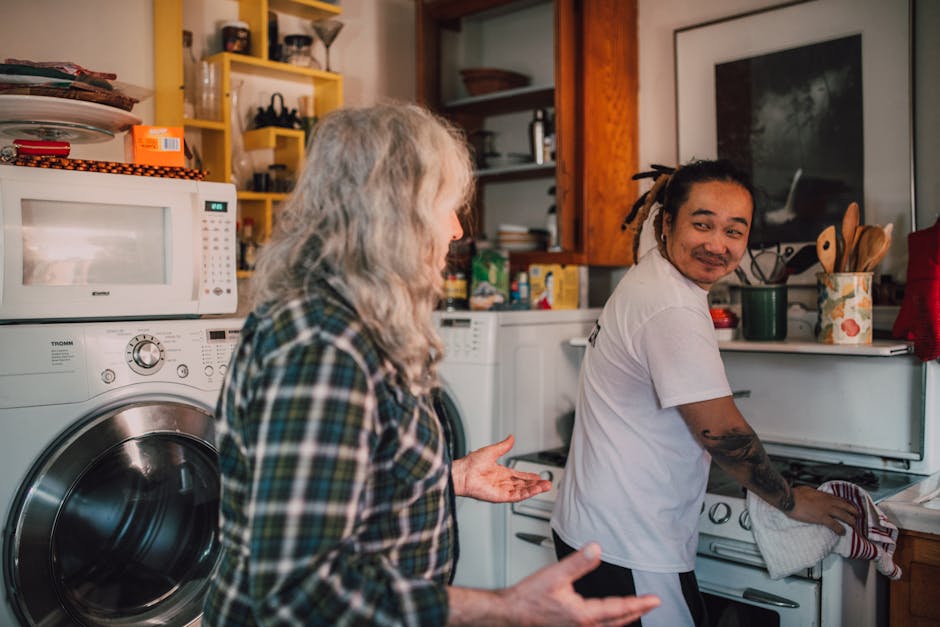Mastering Elderly Caregiver Jobs: What You Need to Know
Working as an elderly caregiver is both rewarding and challenging. This profession requires a unique blend of skills, compassion, and dedication. With the global aging population increasing, the demand for skilled caregivers continues to rise. Caregivers play a vital role in assisting seniors with daily tasks, providing emotional support, and even managing medical needs.

Understanding the responsibilities and qualifications of this role is essential for those considering a career in caregiving or seeking to enhance their expertise.
Understanding the Role of an Elderly Caregiver
Elderly caregivers support seniors in various aspects of their lives. Their responsibilities range from assisting with daily activities like bathing, dressing, and meal preparation to more complex tasks such as managing medications and coordinating medical appointments. This role requires both physical effort and emotional resilience, as caregivers often develop deep connections with those they assist.
Caregiving services must be tailored to individual needs. Some seniors require mobility assistance, while others face cognitive challenges such as dementia or Alzheimer’s disease. Flexibility and attentiveness ensure that care remains both effective and compassionate.
Caregivers also act as advocates, communicating with family members or healthcare providers about changes in a senior’s health or behavior. This collaboration fosters a supportive environment where seniors feel valued and well cared for.
Essential Skills and Qualifications
To excel as an elderly caregiver, specific skills and qualifications are essential. While formal education requirements vary by employer or region, certifications in first aid or CPR are often beneficial. Some jurisdictions require specialized training or licensure, especially if medical-related care is involved.
Key skills for caregivers include strong communication abilities, patience, empathy, and problem-solving. Many seniors struggle to express their needs clearly due to age-related conditions, making clear communication crucial for minimizing misunderstandings and building trust.
Physical stamina is also important since caregiving often involves lifting or supporting individuals with limited mobility. Organizational skills help manage schedules, medications, and dietary plans efficiently.
- Effective communication and interpersonal skills
- Basic medical knowledge (e.g., recognizing signs of distress)
- Time management and organization
- Empathy and emotional resilience
- Physical endurance for demanding tasks
Challenges Faced by Elderly Caregivers
The caregiving profession comes with challenges. One common issue is burnout caused by long hours and emotional strain. Caring for individuals with chronic illnesses or declining health can take a toll on mental well-being if self-care measures are not in place.
Family dynamics can also be difficult to navigate. Relatives may have differing opinions about the care provided or hold unrealistic expectations. Balancing these perspectives while prioritizing the senior’s well-being requires tactful communication.
Cultural differences may present additional challenges. Caregivers working in multicultural settings must be mindful of traditions that influence how families perceive care.
The Growing Demand for Elderly Caregivers
The demand for elderly caregivers has been rising due to demographic shifts. According to WHO (World Health Organization), the global population of people aged 60 or older will double by 2050, surpassing 2 billion. This trend highlights the need for a strong caregiving workforce.
The growing demand has also created opportunities in specialized fields such as dementia care and palliative care. Obtaining additional certifications in these areas can expand career prospects while addressing specific needs within senior populations.
Self-Care for Caregivers
Caring for others requires significant energy and focus. Without proper self-care, caregivers risk exhaustion and decreased effectiveness over time.
Setting boundaries is crucial to preventing burnout. Clearly defining work hours and taking regular breaks helps maintain personal well-being. Seeking support from peer groups or counseling services provides emotional relief by allowing caregivers to share their experiences.
Maintaining a healthy lifestyle through regular exercise, balanced nutrition, and sufficient sleep enhances resilience against stress associated with caregiving roles.
Tips for Aspiring Elderly Caregivers
Aspiring caregivers can gain valuable experience through volunteer work at nursing homes or community centers before committing to a full-time role. Observing experienced professionals provides insight into best practices while helping build foundational skills.
Pursuing relevant education also improves job prospects. Vocational courses in geriatric care offer comprehensive training tailored for working with seniors effectively.
The Value of Empathy in Caregiving
Empathy is one of the most important qualities in a caregiver. Beyond technical competence, caregivers who show genuine compassion build trust and create meaningful connections with seniors.
This profession requires patience, understanding, and respect for the dignity of those receiving care. The ability to form strong bonds with clients makes caregiving deeply fulfilling despite its challenges.
